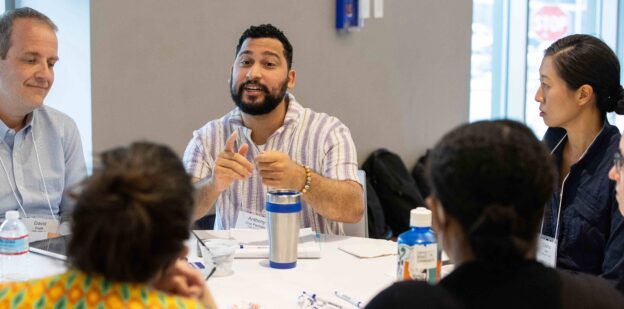- Facebook24
- Twitter1
- Total 25
Dates: June 13 (5pm) until June 15 (1 pm) at Tufts University in Medford, MA
Please hold the dates (June 13-15), register and purchase tickets at the “early bird” discount rate until March 29, and consider proposing one or more sessions for the conference by April 16.
This year’s special theme is “Violence, Nonviolence, and Robust Democracy.” We anticipate robust conversations (and disagreements) about what defines and causes political violence and about the potential and limitations of nonviolent strategies. This year’s plenary speakers on the nonviolence theme will include This year’s plenary speakers on the nonviolence theme will include Damien Conners, Heather Cronk, Jalene Schmidt, Maria Stephan, and Thupten Tendhar. Jessie Landerman and Keisha E. McKenzie from Everyday Democracy will lead an interactive plenary session on Prime Time Propaganda: Using Narrative, Dialogue, and Facilitation Techniques to Confront Violent Forms of Communication
The nonviolence theme is not exclusive; we welcome sessions on other topics related to Tisch College’s “North Star”: building robust, inclusive democracy for an increasingly multiracial society. In particular, we are eager to continue last year’s rich conversations about religious pluralism and democracy and would welcome proposals in that area, whether or not they relate to violence and nonviolence.
Although we will consider proposals for presentations or panels of presentations, we generally prefer proposals for other formats, such as moderated discussions, meetings devoted to strategy or design, trainings and workshops, case study discussions, debates, and other creative formats.
The conference agenda will develop over the next several months.
Cost: $240 for a standard ticket with discounts for current students. This includes hors d’oeuvres on June 13, breakfast and lunch on June 14, and breakfast and lunch on June 15. Other meals and lodgings are not provided.
